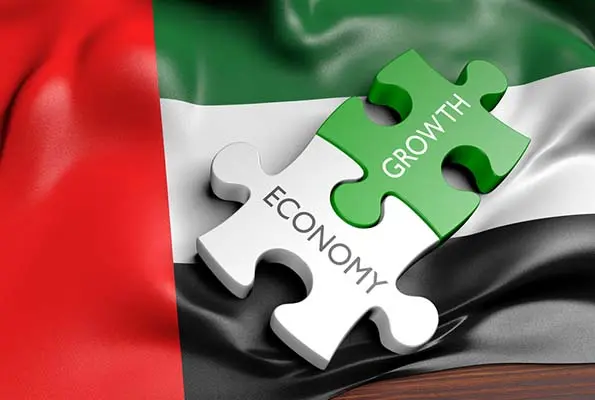A five-month low was reached in January 2024 for the UAE’s non-oil business operations as a result of a slowdown in job growth and a softening of output and new orders.
The S&P Global UAE Purchasing Managers’ Index (PMI), which is seasonally adjusted, decreased from 57.4 in December 2023 to 56.6 in January 2024, which is the lowest number in the previous five months.
The PMI trend showed that non-oil output increased significantly in January 2024, albeit more slowly. The growth rate decreased to its lowest point since August 2023.
Although robust demand conditions contributed to increased sales and the acquisition of new clients, businesses only reported a slight increase in overseas new orders. The development was primarily domestic.
In January 2024, non-oil businesses in the United Arab Emirates reported a marginal increase in their workforce, as robust demand and optimistic business outlooks did not result in more hiring.
According to the PMI survey, there were indications in January of rising supply-chain risks causing delivery delays at certain businesses and higher shipping expenses.
“Meanwhile, the disruption to supply lines resulting from the Red Sea attacks appeared to have a modest impact on the UAE non-oil sector in January, with a few firms noting delivery delays, aggregate backlogs rising, and reports of higher shipping costs by survey respondents,” David Owen, senior economist at S&P Global Market Intelligence, stated.
Businesses surveyed indicated that higher material costs and pay increases significantly increased expenses.
“The impact on inflationary pressures so far has been notable but not severe, as input costs rose at a faster rate than in December but remained slower than in the preceding three months,” said Owen.
According to the study, the company’s optimism about the activity picture for the upcoming year was favourable and around average for 2023.
Meanwhile, Younis Haji Al Khoori, Undersecretary of the Ministry of Finance (MoF), told the Emirates News Agency (WAM) that the UAE economy was projected to grow by 5.7% in 2024 despite prevailing global economic challenges, including a global economic slowdown and difficult financial conditions.
“Our efforts to diversify the economy and promote sustainable growth have proven effective. The country expects non-oil GDP growth to reach 5.9% in 2023 and to grow by 4.7% growth in 2024,” Al Khoori remarked further, while highlighting that the UAE’s non-oil foreign trade hit a record AED1.239 trillion in the first half of 2023, marking a 14.4% increase from the same period in 2022.
Additionally, foreign direct investment (FDI) inflows to the country reached about AED83.5 billion in 2022.
The official also noted that the Purchasing Managers’ Index (PMI) in the UAE climbed to 57.7 in October 2023, reaching its highest level since June 2019.
“This post-COVID-19 surge signifies the pace of recovery and the full resumption of economic activity in the country,” Al Khoori remarked.
He also added that the innovative strategies of the UAE reflected a commitment to work according to the vision of the Gulf nation’s leadership and the ‘Principles of the 50’ which have made economic development a supreme national interest.



